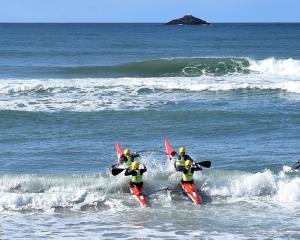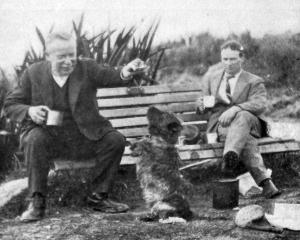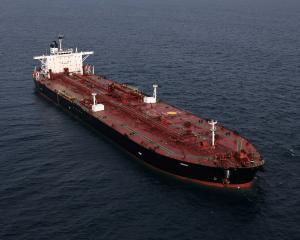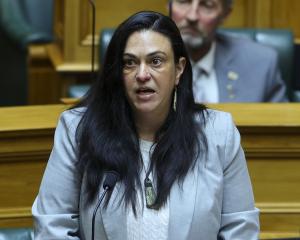
Dunedin-born Rob Sarkies’ Pike River was shot on location in Greymouth, Wellington and Auckland in November and December last year.
The film would depict the aftermath of the November 2010 disaster - in which 29 miners were killed - from the perspective of the affected families and community, Sarkies said.
"What intrigued me about the story was the fact there was a whole lot about it I didn’t understand.
"It’s a very complex story - there has been a royal commission of inquiry, court cases and constant reportage - but I didn’t quite get it.
"So I decided to start exploring the story through the families which were affected. It was a gradual thing for me."
When the families started "getting traction" towards the recovery of bodies in the mine, he felt the development of the film swung into action, Sarkies said.
He worked closely with many of the Pike River families, some of which had roles as extras in the film.
"I know them pretty well now; and they know me - which is great. I still get phone calls from many of the families."
Sarkies is no stranger to making films about real-life events.
His 2006 film Out of the Blue depicts the events surrounding the 1990 Aramoana massacre, where lone gunman David Gray killed 13 people and injured three others.
"The DNA for the approach to Pike River certainly comes from Out of the Blue.
"I approached it the same way, which was to go to the people who were affected by the tragedy and invite them to talk to me.
"There were so many untold stories that surprised me and angered me", he said.
"It’s through those conversations that there was a pathway to a strong film with the permission of the community."
The human element was vital to the story, but he could not ignore the findings of the royal commission or work by journalists such as Rebecca Macfie, Sarkies said.
"The royal commission findings were thousands of pages long, but it gave you a very good technical overview as to how and why the disaster happened.
"It also allowed us to look at the information the royal commission had compared to what the Pike River families got, and end up being as bamboozled as the families.
He often felt "angry" when researching for Pike River, but he also realised there were "extraordinary stories of resilience and bravery", Sarkies said.
"Many of the Pike River families are pretty cynical about power.
"As a nation, we tend to broadly trust those in power to do the right thing, but the Pike River families have reason to question the justice system, the government, even the police - everyone in power - because there were times where they weren’t being served."
He described making the film as an "emotional rollercoaster".
"Just like Out of the Blue, Pike River was a balancing act", he said.
"My emotional rollercoaster ride was a fraction of the actual families’ who went through this. I’m just a bystander."
Pike River stars Robyn Malcolm and Melanie Lynskey as Sonya Rockhouse and Anna Osborne respectively.
Ms Osborne and Ms Rockhouse lost men in the 2010 explosion and have become prominent in the families’ fight for justice.
Lucy Lawless plays unionist Helen Kelly, who advocated for the families and workers.
"In the end, the script that Fiona Samuels wrote and the weight of the story persuaded our cast.
"There are not that many roles for incredibly strong women - the Pike River story was right in the wheelhouse for these amazing actors and human beings."
Pike River is planned to be released nationally and internationally, although a release date has not been set yet.
"I think it’s helpful to come along late in the piece, and look at the disaster with a new perspective.
"It’s a universal story about corporate injustices.
"Now is absolutely the right time for this story to be told on the big screen."
Sarkies had advice for budding film-makers who wanted to make films based on real events.
"You can’t go into the story with an agenda, because then you’re not telling their story, you’re telling your story.
"You should aspire to make something that is both authentic and dramatic - you should gently dig into the human story in a way that doesn’t feel bombastic."
The film was made in association with the New Zealand Film Commission, NZ On Air, Three, the New Zealand Screen Production Grant and Park Road Post Production.











